 Award-winning Neill Cameron has an undeniable abundance of talent for creating rambunctious, reader-centred super hero adventures that grip, engage and entertain reluctant readers as much as committed fans of standard form novels and committed comic book lovers.
Award-winning Neill Cameron has an undeniable abundance of talent for creating rambunctious, reader-centred super hero adventures that grip, engage and entertain reluctant readers as much as committed fans of standard form novels and committed comic book lovers.
Created with humour and wisdom, his books are exciting to read and deliver an important message about acceptance and inclusivity. His series of middle-grade Mega Robo adventures have been reformatted and published in graphic novel form - scroll down for glowing reviews for all three adventures from our editorial experts. Those familiar with the Mega Robo Bros comics will already know Freddy the robot - and he stars in his own adventures, pitched at a slightly younger 5-7 audience.
Neill is a regular contributor to weekly comic, The Phoenix, and is a keen ambassador of the contribution that comics play in developing children's literacy skills.
We are thrilled to welcome Neill Cameron as our Guest Editor this month.
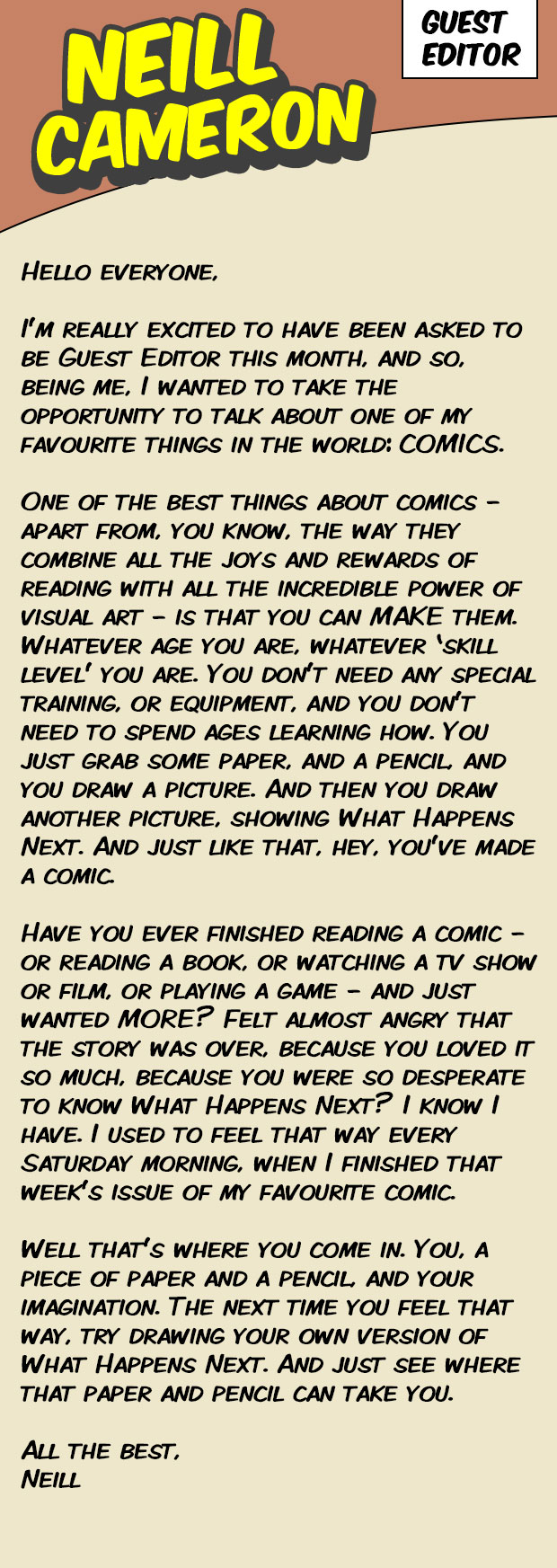
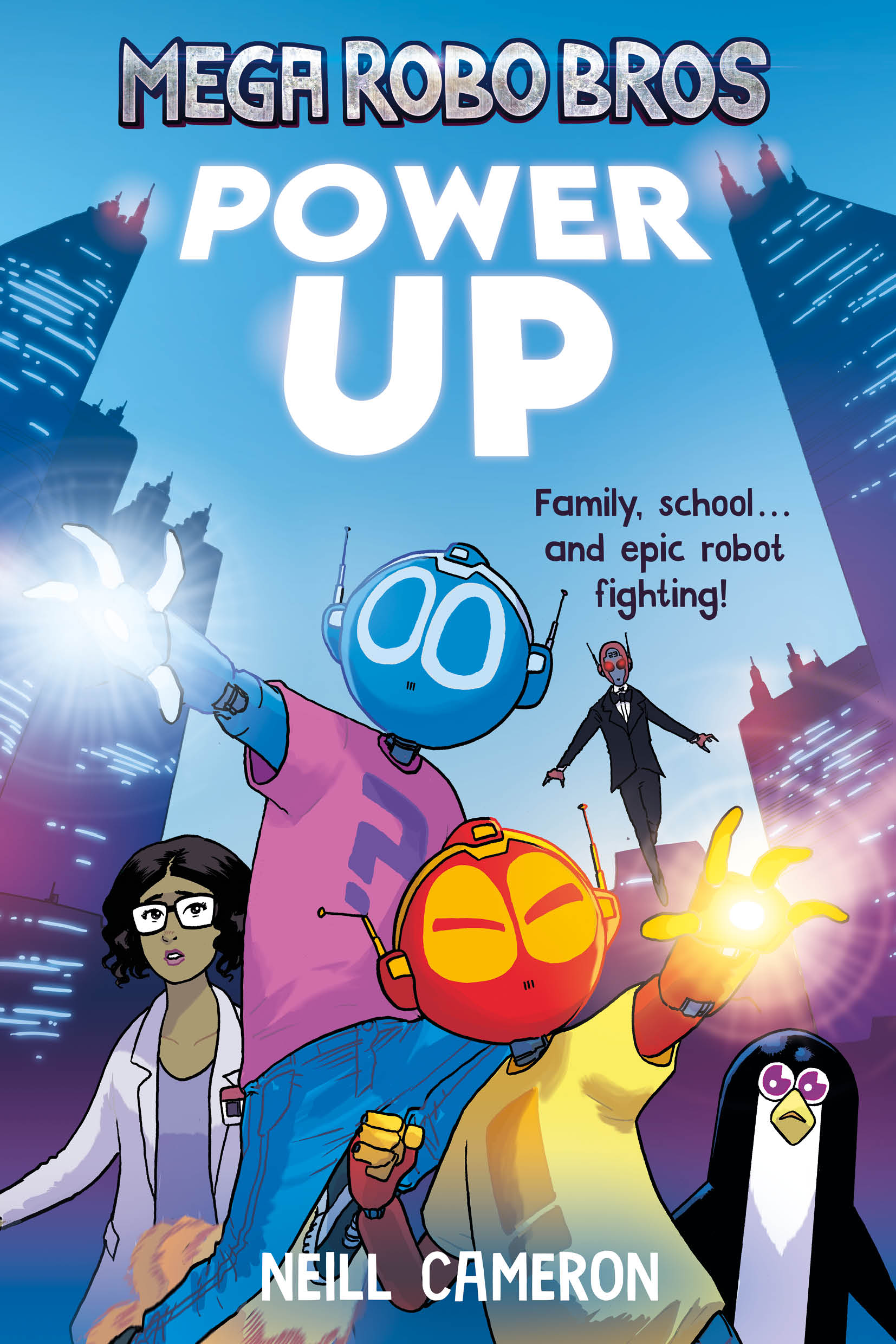 What makes a really brilliant graphic novel?
What makes a really brilliant graphic novel?
I think mostly what makes a brilliant graphic novel is the same thing that makes a brilliant novel, or a brilliant film, or a brilliant tv series. A great story, with great characters, told by someone who knows how to use their medium to tell that story in the most effective way possible.
What is unique about graphic novels and what role do they play in encouraging reading for pleasure in children?
The challenge with this question is answering it without basically writing an entire book. Comics / graphic novels are an incredibly powerful form, combining the rewards and challenges of reading text with all the immediacy and power of visual art and storytelling. They can tell stories in wonderfully exciting, visual, multi-layered ways, and offer storytelling experiences that are powerful, immersive and completely unique. They can develop skills of inference and empathy and interpretation, and they can make people fall in love with reading for life. Basically: comics are pretty great.
Can books compete with computer games?
I don’t think it has to be a competition! Both are wonderful forms, which do very different things, and should be able to happily coexist. It’s like asking ‘can donuts compete with opera?’ To which I would say the answer is YES, although I admit I’m not clear on what form that competition would take and what the prizes would be.
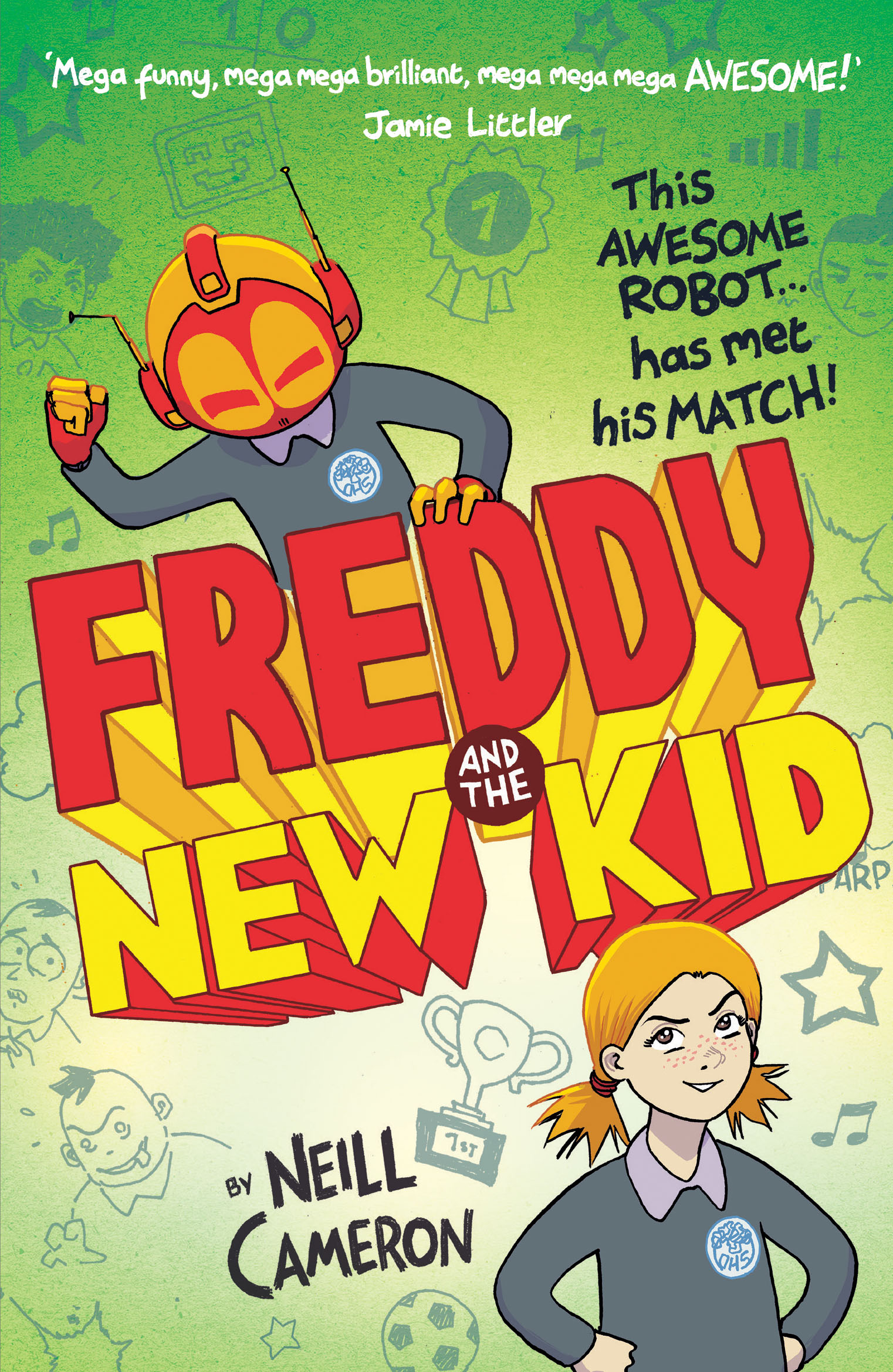 There's an assumption that graphic novels are mainly aimed at boys and reluctant readers. What do you feel about this?
There's an assumption that graphic novels are mainly aimed at boys and reluctant readers. What do you feel about this?
I’ll try to take this question in two parts. Firstly: boys. I think any assumption that comics are mostly ‘for boys’ is pretty unique to this country and a result of a bit of a hangover from a specific set of historical publishing circumstances. Comics created for and specifically aimed at girls used to be enormous back in the mid-to-late 20th century - weekly anthology titles such as Girl, Tammy, Bunty, Misty and Jinty selling in huge numbers, right up there with their ‘for boys’ stablemates. I am not enough of a Comics Historian to know what happened or where they all went, but I think we can all agree that it sucks that they did. Girls read comics in huge numbers everywhere else in the world that comics are a thing - in Japan, in Europe, in the US - and actually they do here, too, as I think any school librarian who’s ever introduced a manga shelf to their library will be able to tell you. We just seem to have a bit of a weird hangover of a notion that they don’t, which hopefully we can all soon move past and pretend never happened.
In terms of reluctant readers: I do think that the immediacy and visual power of comics can make them an incredibly effective form for kids who are struggling with literacy, or who are just early on along that journey. You can get so much from looking at a page of comics - cool artwork, and action and emotion that you can interpret and read as a story - even if you’re struggling with some of the words in the speech bubbles. And that can really encourage and reinforce your efforts to read those words. I do think there’s a danger in thinking that comics are ‘just’ for reluctant readers, though. Like I say, they’re an incredibly powerful and multi-layered form in their own right, and offer reading experiences unlike any other medium, that can be profoundly rewarding and really engage the imaginations of readers with highly-developed literacy skills. Basically, I’m saying there’s a reason every hyper-intelligent nerd you know is so into comics.
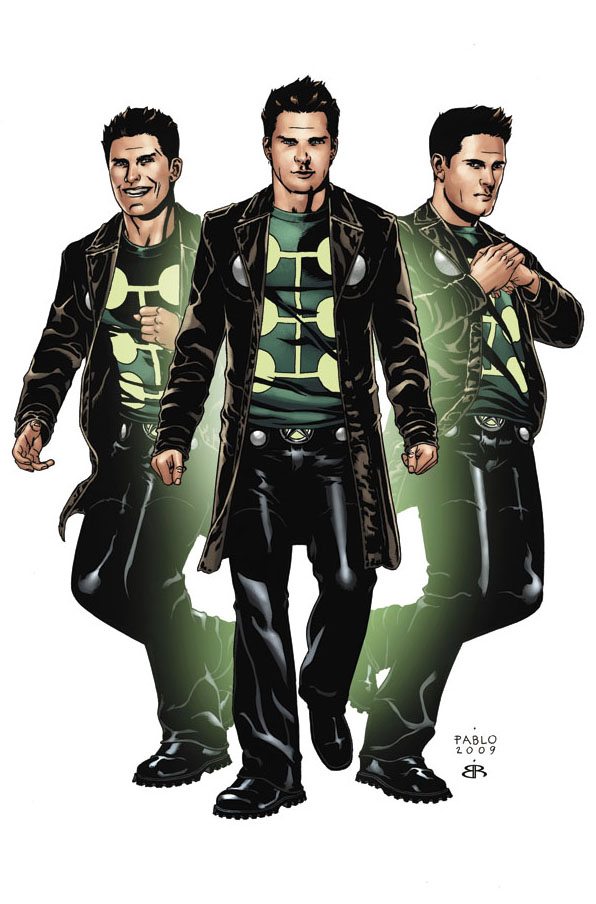 What would your superpower be?
What would your superpower be?
There’s a character in the X-Men called Madrox: The Multiple Man, whose superpower is to basically create lots of identical duplicates of himself at will, and I can’t help thinking: man, that guy could get a lot of comics drawn.
Did young Neill have a love of reading?
Oh yes, absolutely. Reading was pretty much my favourite thing in the world. Except possibly drawing. Or, okay, fine, biscuits.
Who is your favourite fictional hero from children's literature?
Absolutely and unquestionably, Samwise Gamgee from Lord of the Rings.
One in three of all books sold is a children's book yet children's books only get 4% of review space in the media. Why do you think this is - and what can be done?
If I had to guess, it’d be because those media whose review space we’re counting… aren’t really read by children? I don’t know many kids who are subscribers to the TLS. I think it must be a challenge for editors of newspaper review sections and the like to judge what will be of the most interest to most of their readers, and while only a subset of their readers will have children, and a subset of that subset will be actively interested in what their children are reading, EVERYONE likes reading about murders, or disaffected academics committing adultery, or whatever it is they’re actually devoting all their review space to. I don’t know, really. I guess that one good thing about living in the modern world is that old media - those newspaper review sections or whatever - are no longer the only way to reach people. Maybe children’s books are better off communicating with those people who DO have kids and ARE actively engaged in what they’re reading more directly, through book-themed dances on TikTok, or whatever it is this week.
What does LoveReading4Kids mean to you?
It means a lot, and I’m really grateful to have been given this opportunity. Our culture - the aforementioned traditional media, the publishing landscape in general - maybe sometimes doesn’t place a high value on children’s books. And definitely not on funny children’s books. And definitely not on funny children’s books that are comics. Put all that together and it can be really hard as a creator for people to even hear about your work in the first place. And if you’re not already famous for being, I don’t know, a judge on a TV talent show or something, to pick an example at random… well, basically god help you. So places that are doing the work of boosting the smaller voices are incredibly valuable, and incredibly appreciated. Selfishly, because obviously I want people to hear about MY books, but also much more importantly for readers. It’s so important that children be given a wide range of stories, that they get the chance to find the stories that will connect with them. That will make them fall in love with reading, with all the benefits that brings, for the rest of their lives. Thank you.
As our Guest Editor, Neill has given us his five must-read kid's books:
Attack Of The Deranged Mutant Killer Monster Snow Goons by Bill Watterson
Bill Watterson’s Calvin and Hobbes is one of the great artistic works of the last century; thrilling, beautiful, wise and incredibly funny. I could have picked any of the collections, as they’re all absolutely fantastic and basically essential reading. But I went for this one, based mostly on the fact it has the greatest title of any book ever created.
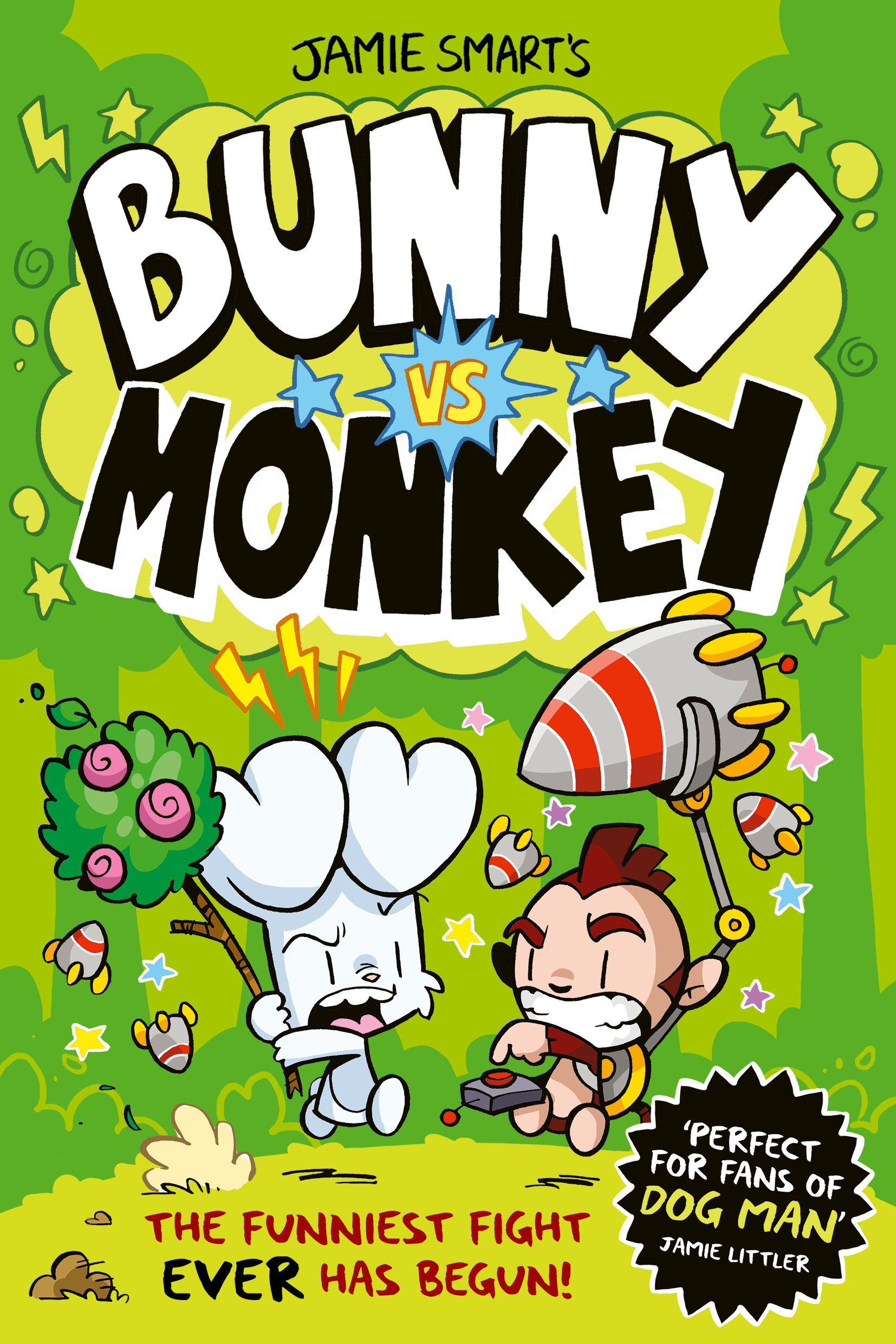 Bunny VS Monkey by Jamie Smart
Bunny VS Monkey by Jamie Smart
Hilarious, bizarre, endlessly playful and inventive, Jamie Smart’s Bunny VS Monkey is quite rightly leading an explosion in the popularity of new comics for children in this country. If it’s not the favourite comic of every kid who’s ever read it, it’s only because they prefer Jamie’s other masterpiece Looshkin.
Lost Tales by Adam Murphy and Lisa Murphy
Adam and Lisa Murphy are world-class storytellers, and in this book they use their talents to tell, appropriately, the stories of the world. A collection of folk tales from different cultures and traditions, these stories are fantastical and thrilling and hilarious and sad, and are all told in Adam’s distinct authorial voice: funny, wise, and full of a baffled, skeptical empathy.
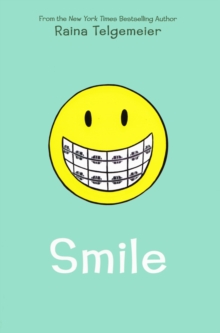 Smile by Raina Telgemeier
Smile by Raina Telgemeier
Raina Telgemeier is an absolute phenomenon. Her wildly popular comics span both memoir (as in this, Sisters and Guts) and fiction (Drama, Ghosts), telling grounded, real-world stories that are warm, compulsively readable, and full of heartfelt emotion and truth.
This One Summer by Jillian Tamaki and Mariko Tamaki
Edging up into YA, this story of two childhood friends growing up and growing apart over a summer in a beach town is sensitive, powerfully honest and just an absolute masterclass in comics storytelling. It’s an incredible work, full of incredible atmosphere and pacing and the most beautiful artwork that human hands could ever hope to make.
Thanks for sharing your recommendations Neill - and for promoting the brilliance of comics as an invaluable and exciting medium.
Scroll down to find books by comics genius, Neill Cameron - and click on any of the books below to win a bundle of Mega Robo Bros books!














Comments (16)
Jodie F - 7th May 2022
I work in a theraputic school for children that can't access mainstream education for many reasons. Even if the young people struggle to read, they love being read to. The power of an engaging , exciting story is amazing.Jeanette L - 7th May 2022
Some amazing books my daughter would love to readMichelle M - 6th May 2022
I agree with some of your must read books so I’ll have to get the others now. We like comics in this house.Susan B - 6th May 2022
What a lovely, upbeat post and Q&A. Thank you for the must-read books. I will be investing in those for the children.Ellen S - 5th May 2022
Hey Neill....your bo0ks sound amazing!Anthea H - 5th May 2022
Hello - I love your comments and can't wait to read some of these books! Thank you so much.Gill W - 4th May 2022
I loved comics as a child but not sure I could write/draw my own.Bethany D - 1st May 2022
Great recommendations.Roz E - 27th April 2022
Graphic novels are so popular at my school, really helpful recommendations to grow our collectionstacey a - 26th March 2022
Can't wait to read some of these with my sonDiary Of Difference ( - 24th March 2022
Amazing recommendations, Neill!Karen P - 24th March 2022
Thank you for the recommendations and your really interesting insights into the value of graphic novelsmelanie c - 24th March 2022
I too loved Smile- not seen your other recommendations, will check them out.Margaret G - 19th March 2022
Hi NeilAlison P - 11th March 2022
Really insightful article, thanks for the recommendations too!Jacqui G - 10th March 2022
I love that your favourite fictional hero is Samwise Gamgee, most people would opt for Aragorn, or even Frodo himself.Leave A Reply
You must be logged in to post a comment.